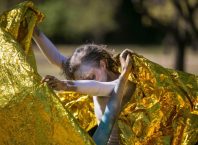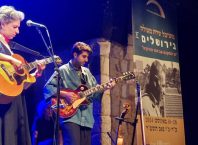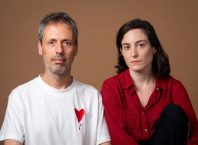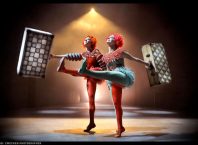To everything there is a season, and the summer of 2011 will be the first Jerusalem Season of Culture (JSOC). Those with an ear to the ground felt the rumbling from the hills last summer, as one event after another – Between the Lines and Shlomi Shaban at the 2nd International Writer’s Festival, Videodance Festival at the School for Visual Arts, Under the Mountain at the Israel Festival, Balabasta at the Mahne Yehuda Market and Contact Point at the Israel Museum – brought intimations of cultural vibrations that will rock your world.
Beginning May 18, 2011 and continuing thru July, the project is the initiative of the Schusterman Foundation–Israel and its founder Lynn Schusterman, bringing the vibrant diversity of Jerusalem culture to a wider audience, generating new creative energy, connections, collaborations and discourse between artists, musicians, performers and thinkers. The season is curated by Itay Mautner (read more about Mautner’s Jerusalem roots and perspective on JSOC in his interview with Midnight East), co-founder of ARTLV and Pecha Kucha Nights, and Naomi Bloch Fortis (former executive director and co-artistic director of the Batsheva Dance Company), JSOC senior strategic advisor.
Addressing a group of journalists on a preview tour of next summer’s events, Mautner said, “We’ve been working on JSOC for two years, exploring all these layers of Jerusalem. Jerusalem is dominated by two narratives: holiness and the conflict, but there is another narrative, the cultural narrative. The cultural narrative created here in the madness of the city is unique and complex. It’s not just another narrative like you might find in any other city of the world – Tel Aviv or Madrid. We refer to “culture” in the broad sense of the word, and tried to map the unique qualities of the city, working from the ground up rather than coming as an external organization planting cultural activities in Jerusalem. We closed our eyes and tried to imagine Jerusalem in 2015.”
Jerusalem in 2011 will be the center of several exciting events – including performances of the Merce Cunningham Dance Company Legacy Tour, a commissioned work by Kutiman, Soprano Renee Fleming at the Sultan’s Pool and the much anticipated return of Contact Point at the Israel Museum.
Opening the season will be Contemplation – a different take on philosophy produced in cooperation with Mishkenot Sha’ananim, which will take place from May 18 – 20. Philosophers and cultural figures will convene for a three day intellectual event that ventures beyond the conventional academic lecture format.
JSOC is cooperating with the Israel Festival, the Israel Museum and the Jerusalem Academy of Music and Dance to bring the Merce Cunnningham Dance Company to Jerusalem. The innovative, world famous choreographer made meticulous plans in anticipation of his demise, answering what Naomi Bloch-Fortis referred to as “the fascinating question: what happens to a dance company that is centered on a choreographer when that choreographer dies?” Cunningham’s plan involved the preservation of his oeuvre in digital form, creating “Dance Capsules” for future generations, and a two year world-wide legacy tour of his repertoire with the Merce Cunningham Dance Company, which will disband at the end of the tour. The company will perform works from Cunningham’s repertoire at the Jerusalem Theatre on June 6, 2011, and the Israel Museum will host six performances (June 9 – 11, 2011) of the famous Cunningham “Events” – a site-specific performance that juxtaposes movement with the museum’s spaces.
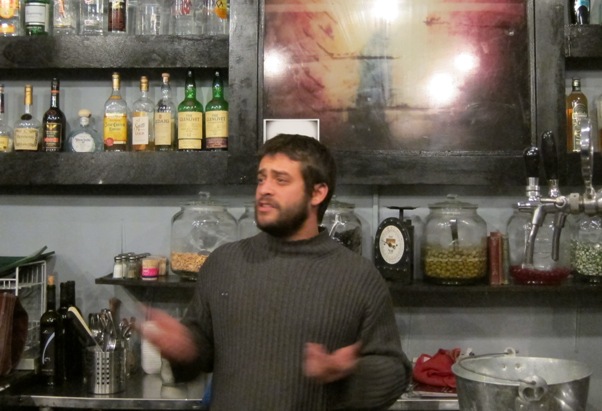
Under the Mountain, the fringe expansion of the Israel Festival will return in June, celebrating Jerusalem’s alternative culture. Alternatives are alive and kicking in Jerusalem, as a visit to Hakatze Bar on Shushan Street makes clear. From his vantage point behind the bar, Mautner said, “When I talk about an alternative culture in Jerusalem, I refer to a culture that is subversive, asking questions, raising doubts. The Under the Mountain festival is dedicated to this vibe.” The cultural ferment is more than a once a year event. Hakatze owner Ido Levit initiated “Urban Edge” – an art project dedicated to revitalizing Shushan Street, which he described as having been “a neglected parking area.” Working with artists to create street art, the project has gone beyond specific art works to changing the feel and energy of the street – which, not coincidentally, is now scheduled for extensive renovation.
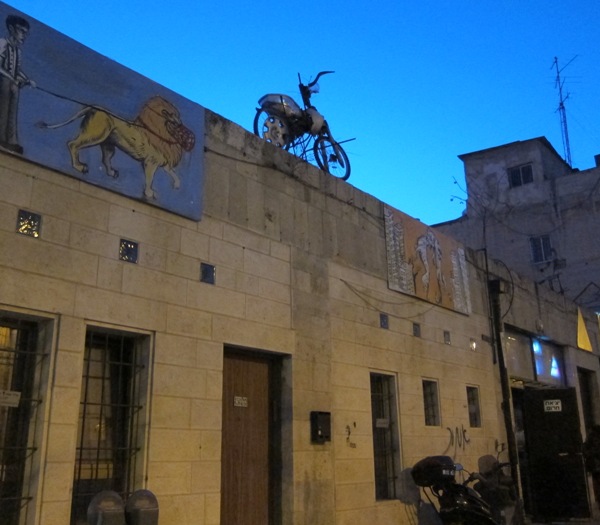
The Tower of David Museum will host an exceptional performance: Steve Reich’s Different Trains, staged by Pia Forsgren, Theatre Manager of the Jewish Theatre of Sweden, performed by the Fleshquartet in a glass installation designed by the artist Ann Wåhlström. The performance will take place in the Kishle, an abandoned ancient Turkish prison, which will be converted into a unique performance space for this production. “There is no stage in the conventional sense,” says Bloch-Fortis of the production, “there will be no separation between the audience and the performers. 150 people will mingle together on a floating stage [designed to protect the archaeological artifacts on the site]. It will be a visual, as well as a musical concert.” Performances are scheduled to take place from late June to late July.
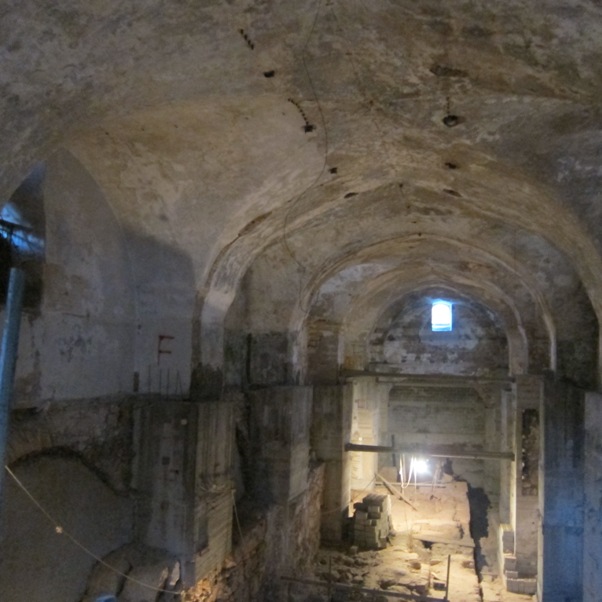
Balabasta will return to the Mahne Yehuda Market, celebrating the market’s 150th anniversary. Developed in partnership with the Lev Ha’ir Community Association, the Merchant’s Committee and local cultural organizations, Balabasta was planned as an event that would work with the market, rather than cultural events taking place with the market as a background. As anyone who visited Mahne Yehuda on Monday afternoons last summer knows – it was a huge success, with different events each week.
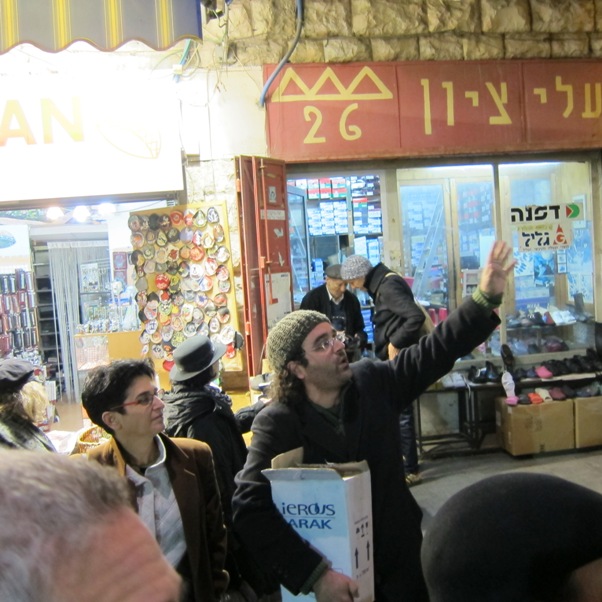
The Israel Museum’s new look was one of last summer’s landmarks, and Contact Point was certainly the high point, opening a new way of engaging with the museum and its exhibits. Artistic Director Nir Turk orchestrated a multi-disciplinary event in which artists in different fields were invited to create a one-time performance event in response to a particular work of art or exhibit in the museum. One of the most amazing parties of the year, the return of Contact Point next summer (sometime in July) is highly anticipated.
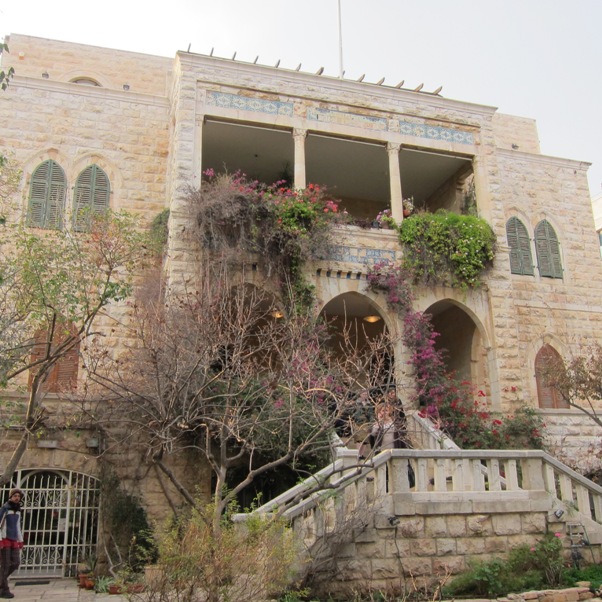
Realizing that James Snyder, Director of the Israel Museum, knows how to throw a good party, JSOC took the idea a step further, initiating a series of home concerts that will take place in the Snyder home and other homes of interest in the Talbiya neighborhood. Echoing the cultural salons of Europe, these site specific performances in intimate, private settings will take place under the artistic direction of Dafna Karon, and the content will relate in some way to the homes and their history.
Yet another summer highlight will be the performance of acclaimed soprano Renee Fleming in the Sultan’s Pool with the Israel Philharmonic Orchestra, conducted by Zubin Mehta. Celebrating 50 years since Zubin Mehta first raised a baton in Israel; the artistic directors have announced that there will also be a multi-screen visual element to the concert.
When I hear the words “multi-screen” I think of Israeli artist Kutiman, whose groundbreaking “Thru-You” is a collage of short video clips from YouTube. This innovative artist has been selected as JSOC’s first “Artist of the Season” and will create a work especially commissioned for JSOC 2011. The first fruits of Kutiman’s creative research can be enjoyed here and now:
AYELET DEKEL


